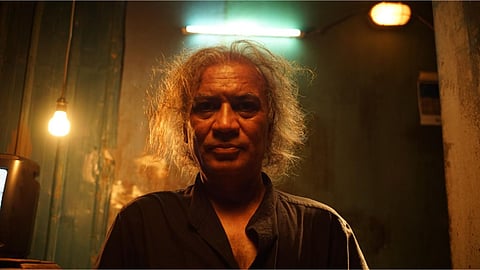

Actor Vipin Sharma, who catapulted into the limelight with the role of the young protagonist Ishaan’s dismissive father in 2007’s Taare Zameen Par, plays a gentler, more affirming character in Dev Patel’s action extravaganza Monkey Man. Donning a petticoat, with flowing hair and long, painted nails, he gets into the skin of Dev’s mentor in the film, a transgender, boldly named ‘Alpha’. It’s a brief but integral character, somebody who helps the protagonist, ‘Kid’, find his feet after he is down and out. As Monkey Man still awaits an Indian release, we speak to Vipin about playing a transgender with sensitivity, debut filmmaker Dev’s approach and why he thinks Monkey Man is not a violent film.
EXCERPTS:
First things first. How did you become a part of Monkey Man?
I was cast for a brief role in Hotel Mumbai (2018). I had a small scene with Dev Patel, in which he walked into the hotel lobby I was working in. This was the first time I met him. When I met him again, he told me he remembered my scene in the film and that he wanted to write this role for me in Monkey Man. That’s how it all began.
You play the role of Alpha, a transgender, who is the mentor for Dev’s character in the film. How would you describe your character?
As you mentioned, my character is a mentor and also a spiritual guide to Dev’s character ‘Kid’ in the film. It also reminds me how kinnars (transgenders) used to be these spiritual guides to kings. I think that’s what the character is about.
This is Dev’s first film as a director. Some say debut directors tend to be extremely particular and micro-managing. How was working with him?
He lets you be. He was very thorough in the research for the story and very clear as to what he wanted. Although he was also acting in the film, he knew how he should be in a shot. He had worked out everything in detail. When it came to giving briefs, he would only talk about the style of the film and if the dialogue was flowing in that direction. He would not try to show you how it was supposed to be done.
In an earlier interview, you said you don’t see Monkey Man as a violent film. Why is that?
I actually see Monkey Man as a very delicate, fragile film, despite all the violence in it. Although, it has an anger against injustice. Anyone who has seen the film knows that it ends on a gentler note, like a prayer. The film has certain poetry in the climax, irrespective of the mayhem that precedes it. But behind all the brutality, there is a lot of heart. It’s not just violence for the sake of it.
Hindi films are becoming increasingly violent. But it is mostly a punching-down sort of portrayal. A privileged, rich protagonist might just kill hundreds and there are no repercussions. Violence is there just to excite the audience. It lacks any purpose or direction. What is your take on this?
I believe it is the choice of filmmakers as to what film they want to make. If they want to choose the medium to show violence just for the sake of it, good for them. Personally, I would prefer a film like Monkey Man, which gives so much nuance to the violence. By the end of it, cinema is a medium and it is up to the makers to use it for good or worse.